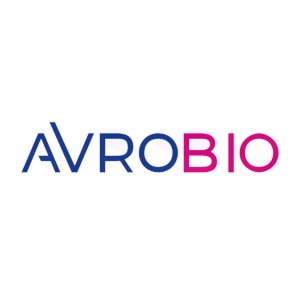AVROBIO Receives Orphan Drug Designation from the U.S. Food and Drug Administration for AVR-RD-05, a Gene Therapy for Mucopolysaccharidosis Type II (MPSII) or Hunter Syndrome
AVR-RD-05 is the fourth
FDA previously granted rare pediatric disease designation for AVR-RD-05
Orphan drug designation is granted by FDA to drugs and biologics that are intended for the safe and effective treatment, diagnosis or prevention of rare diseases or conditions that affect fewer than 200,000 people in the
Hunter syndrome is caused by a deficiency in the lysosomal enzyme iduronate-2-sulfatase (IDS), which is essential for breaking down large sugar molecules. The gene therapy uses a patient’s own hematopoietic stem cells (HSCs) that are transduced ex vivo with a lentiviral vector encoding the human IDS enzyme. The company’s planned collaborator-sponsored Phase 1/2 clinical trial for Hunter syndrome is expected to commence in 2023 under the company’s collaboration with the University of
About Hunter syndrome
Hunter syndrome, which affects an estimated one in 100,000 to one in 170,000 males worldwide, causes devastating complications throughout the body, including severe neurological, cardiac and respiratory dysfunction, skeletal malformations and hearing impairment. Children with severe cases of Hunter syndrome typically show early symptoms of the disease in infancy and childhood and begin to regress developmentally, losing basic motor skills and cognitive function over a few years. The current standard of care is weekly enzyme replacement therapy (ERT), which can delay some health complications but does not halt overall progression of the disease and has not been demonstrated to address the central nervous system (CNS) issues. Even with ERT, people with Hunter syndrome face life-limiting symptoms and a significantly reduced lifespan.
About
Our vision is to bring personalized gene therapy to the world. We aim to prevent, halt or reverse disease throughout the body with a single dose of gene therapy designed to drive durable expression of therapeutic protein, even in hard-to-reach tissues and organs including brain, muscle and bone. AVROBIO’s pipeline is powered by our industry-leading plato® gene therapy platform, our foundation designed to deliver gene therapy worldwide. It includes clinical programs in cystinosis and Gaucher disease type 1, as well as preclinical programs in Gaucher disease type 3, Hunter syndrome and Pompe disease. We are headquartered in
Forward-Looking Statements
This press release contains forward-looking statements, including statements made pursuant to the safe harbor provisions of the Private Securities Litigation Reform Act of 1995. These statements may be identified by words and phrases such as “aims,” “anticipates,” “believes,” “could,” “designed to,” “estimates,” “expects,” “forecasts,” “goal,” “intends,” “may,” “plans,” “possible,” “potential,” “seeks,” “will,” and variations of these words and phrases or similar expressions that are intended to identify forward-looking statements. These forward-looking statements include, without limitation, statements regarding our business strategy for and the potential therapeutic benefits of our preclinical and clinical product candidates, including AVR-RD-05 for the treatment of Hunter syndrome, the potential benefits and incentives provided by the FDA’s orphan drug designation for AVR-RD-05, the design, commencement, enrollment and timing of planned clinical trials, preclinical or clinical trial results, product approvals and regulatory pathways, our plans and expectations with respect to interactions with regulatory agencies, anticipated benefits of our gene therapy platform including potential impact on our commercialization activities, timing and likelihood of success, the expected benefits and results of our implementation of the plato platform in our clinical trials and gene therapy programs, and the expected safety profile of our preclinical and investigational gene therapies. Any such statements in this press release that are not statements of historical fact may be deemed to be forward-looking statements. Results in preclinical or early-stage clinical trials may not be indicative of results from later stage or larger scale clinical trials and do not ensure regulatory approval. You should not place undue reliance on these statements, or the scientific data presented.
Any forward-looking statements in this press release are based on AVROBIO’s current expectations, estimates and projections about our industry as well as management’s current beliefs and expectations of future events only as of today and are subject to a number of risks and uncertainties that could cause actual results to differ materially and adversely from those set forth in or implied by such forward-looking statements. These risks and uncertainties include, but are not limited to, the risk that any one or more of AVROBIO’s product candidates will not be successfully developed or commercialized, the risk of cessation or delay of any ongoing or planned clinical trials of
View source version on businesswire.com: https://www.businesswire.com/news/home/20220713005196/en/
Investors:
Westwicke, an ICR Company
339-970-2843
chris.brinzey@westwicke.com
Media:
Ten Bridge Communications
617-999-9620
krodophele@tenbridgecommunications.com
Source:






